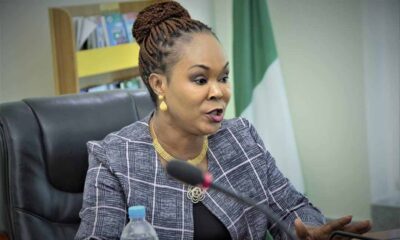metro
Bribe-For-Votes: Delegates dare EFCC, ICPC

Party delegates are taking advantage of their parties’ primaries to make money from aspirants, with some of them describing themselves and the electioneering season as beautiful brides and opportunistic respectively. But there are concerns raised from all spheres of the Nigerian society over what is seen as another form of corruption, with calls that the delegates be prosecuted.
Speaking on Thursday in Abuja at a book launch, former President Goodluck Jonathan described the ongoing primaries as a mess.
Jonathan said, “These whole primaries going on across the country is a mess. This is not a standard practice. The process has failed.
“We cannot use the process to elect president, governors, senators and House of Representatives members and others.
“The process has already failed, which is not good for the country. But we will manage and move on.”
Also, the election umpire itself, the Independent National Electoral Commission (INEC), expressed fears over the manner politicians have monetised the country’s electoral process, describing it as a dangerous trend.
The chairman of the commission, Professor Mahmood Yakubu, and his predecessor, Prof Attahiru Jega, faulted the practice during a one-day colloquium with the theme, “Emerging Issues That Will Shape the 2023 General Elections in Nigeria,” organised by the Centre for Democracy and Development and Open Society Initiative for West Africa.
The civil society on its part sees it as outright corruption. Speaking on the matter, the executive director, Resource Centre for Human Rights and Civic Education (CHRICED), Dr Ibrahim Zikirullahi, said what is going on is political corruption, which removes every iota of credibility from the process.
READ ALSO:
- Russian troops storm Sievierodonetsk as Donbas suffers heavy bombardment
- Russia unlikely to use tactical nuclear weapons against Ukraine, says its ambassador to UK
- National Population commissioner killed in Nasarawa, his two daughters kidnapped
He said those involved in inducing delegates had replaced ideas with money and they appear to be getting away with it.
“There are aspirants who lost after bribing delegates, and they are boldly coming out to request for refunds. If the electoral act makes vote buying punishable, we wonder why the anti-corruption agencies are watching aspirants and delegates blatantly buying and selling votes.
“A politician who bought his way to the ticket will likely seek to recover what he spent, and it is the public treasury that will bear the brunt in the end.
“Nigerians will do well to reject parties that have turned the primary process to a bazaar. Such parties can never mean well for the Nigerian people,” Zikirullahi said.
A resident of Jos, Plateau State, Hamisu Dogua, has raised alarm that the bribing of delegates is an act of corruption capable of derailing Nigeria’s democracy.
“There is no doubt that many of the parties and the politicians have lost their morality and ethics and are ready to mortgage our country, future and our lives for token sums. If this is allowed to continue unchecked, the democracy we are so proud to have will turn into turmoil and bloodbath,” he said.
He, therefore, called on the Economic and Financial Crimes Commission (EFCC) to intervene and arrest the situation.
Delegates admit receiving inducements from aspirants
Delegates who participated in the House of Assembly, House of Representatives and Senate primary elections of the Peoples Democratic Party (PDP) in Kaduna have narrated how aspirants paid them huge sums of money to sway their votes.
Our correspondent gathered that delegates for the All Progressives Congress (APC) too have benefitted from funds paid by presidential aspirants who visited the state.
Things took a dramatic turn in Kaduna when an aspirant who lost primary election forcefully recovered his money.
Adam Namadi, son of a former vice president, Alhaji Namadi Sambo, asked 30 delegates to refund N76million after he failed to secure the PDP ticket for Kaduna North federal constituency.
Another aspirant, however, stepped down when delegates demanded bribe.
In Borno State, during the primaries of the PDP, delegates received undisclosed sums of money from aspirants, but in the ruling APC where key positions are contested unopposed, the delegates complained that they made peanuts.
An APC delegate decried that majority of the positions were contested unopposed.
“We are not happy that the bigger positions like governorship and senatorial where huge amount of money would be distributed are unopposed. But we got small amounts for affirmation voting,” he said.
Some delegates who spoke to our correspondent in Imo described the primaries as the best period in the electioneering process.
No fewer than 10 presidential aspirants had visited Imo in the last one month. Vice President Yemi Osinbajo had visited the state three times, the last being on Tuesday when he met delegates at the Rockview Hotel.
Our correspondent gathered that each delegate got as much as N400,000 from one aspirant.
It was also gathered that a presidential aspirant who visited his party secretariat and met with delegates gave them $50,000.
A PDP delegate from Owerri municipal said, “We are now the beautiful bride and we intend to make use of this period because after this we will not see them again. So, for us, primary election is our cash cow.”
Our correspondent learnt that in Edo, delegates were rewarded handsomely for their support to the candidates.
A delegate who refused to mention the amount simply said, “We received good money from candidates.”
Our correspondent in Kogi State reported that two aspirants for the central senatorial district allegedly competed to offer delegates inducements.
It was alleged that Natasha Akpoti-Uduaghan promised each delegate N300,000, plus motorbikes, while Mahmud Ademu Attah proposed N1.5million. Both were said to have increased the stake when the battle peaked.
But delegates declined to speak. One said, “Not sure, don’t be taken away by social media lies.” Another said, “Is that so? I am hearing this for the first time.”
In Taraba, delegates in the just concluded PDP primaries were allegedly bribed with N100,000 and N250,000 by those vying for tickets to State Assembly and National Assembly respectively, while the highest bidder for governorship ticket was alleged to have paid the delegates N350,000.
Party delegates in Akwa Ibom State, especially members of the PDP and the APC, also hit a goldmine with the ongoing primaries.
Our correspondent, however, gathered that some of the delegates were made to swear to an oath of allegiance to be true to their voting promise after collecting money.
Delegates adamant, say EFCC, ICPC lack evidence to prosecute them
In Kano, an anonymous delegate insisted that there was nothing wrong in collecting money from aspirants, describing the money as “chicken change” that will not last.
“It is just our time to smile after a very long period. Whoever is asking for our prosecution is certainly not privileged to be in our shoes because I doubt if there’s one person in Nigeria that will not collect,” he said.
He added that contrary to what people believe, many delegates don’t receive the huge amount of money being called out in the media because of middlemen, except in situations where they are lucky enough to receive the money directly from the aspirant.
Also in Kano, an APC delegate who spoke anonymously, described the largesse as their ‘share,’ which had been budgeted for by all the aspirants.
They both said the EFCC and the Independent Corrupt Practices Commission (ICPC) had no proof that they were bribed.
Another delegate of the APC in another state said it was to evade prosecution that campaign funds were not paid into bank accounts, which he said could be traceable.
“Who can prove that they gave us money?” he asked, adding that the EFCC or ICPC would have a hard time proving that delegates collected money from aspirants.
A PDP delegate in Borno State said the process of sharing money might not be easy to be tracked by anti-graft agencies.
“I don’t have any fear of being tracked down because I did not receive any document or evidence of payment from the aspirants. I am not afraid of anything because delegates’ election is just like business, the highest bidder gets the result. And I will vote for the one who gives me the highest amount, or the aspirant of my political mentor,” he said.
Delegates selling their conscience – Adamu
The National Chairman of the ruling APC, Senator Abdullahi Adamu, has accused some delegates of selling their conscience.
Adamu, who said this in an interview with VOA Hausa service, however, said there was no evidence to substantiate allegations that the party’s presidential aspirants had been sharing money to delegates ahead of the primary.
He added that there was no law in the country stopping presidential aspirants from taking their electioneering campaigns to delegates across the country.
“For now, there is no law against aspirants taking campaigns to delegates. I don’t have evidence that aspirants are sharing money to delegates. For me, it is the delegates that are selling their conscience, which is not proper.
“Our delegates should know that anybody sharing money to them can’t be the right candidate of the party. He doesn’t mean well for the country. But I don’t have solution for the problem,” Adamu said.
metro
EKEDC blames faulty transmission lines for poor power supply in Lagos
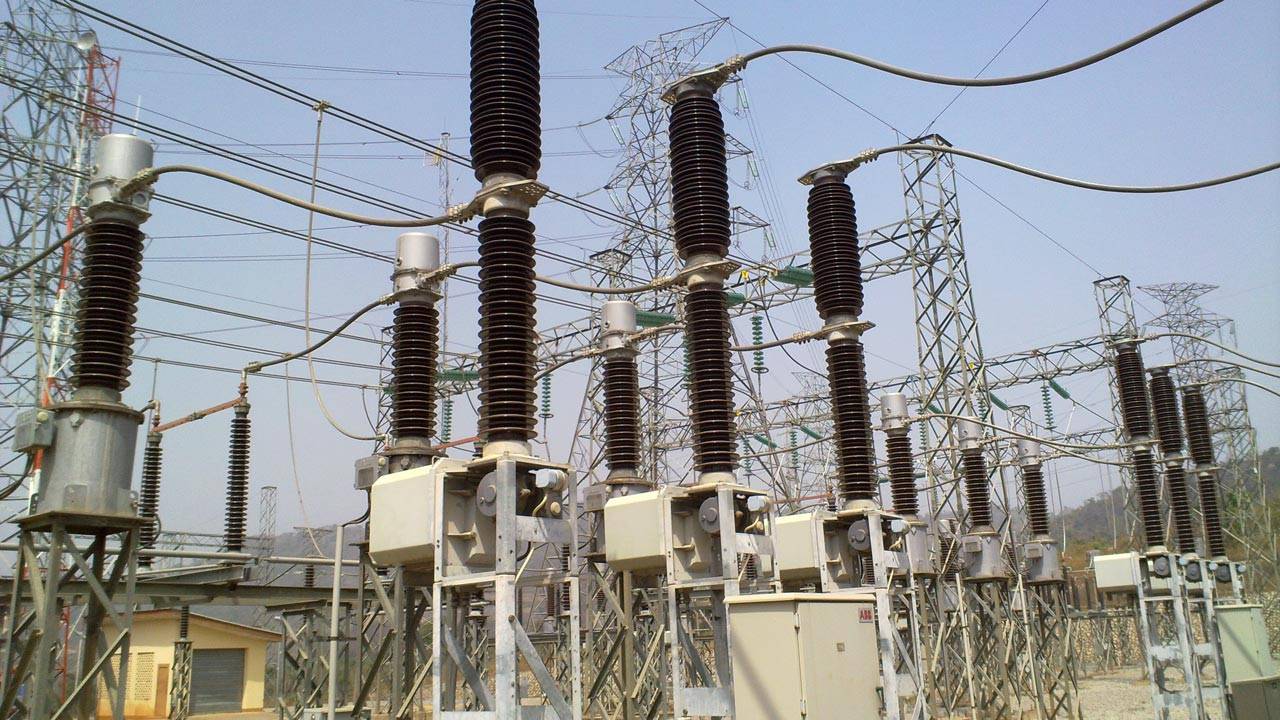
EKEDC blames faulty transmission lines for poor power supply in Lagos
Lagos residents have been grappling with persistent power outages as the Eko Electricity Distribution Company (EKEDC) on Monday attributed the situation to faults on the 330kV transmission lines supplying power to the region.
In a statement signed by EKEDC, the company explained that the reduced power allocation from its partners at the Transmission Company of Nigeria (TCN) has led to load-shedding across its network.
“This is to kindly update you that we are still experiencing reduced power allocation from our TCN partners due to faults on the 330kV lines feeding the Lagos region,” EKEDC said.
READ ALSO:
- BREAKING: Rivers Assembly issues warrant of arrest on RISIEC chairman
- Tension in Oyo as residents protest 23-day curfew for Alaafin’s traditional rites
- Rivers: Channel your invitation properly, Speaker Amaewhule tells Gov Fubara
The company assured customers that efforts are underway to restore normal supply in collaboration with TCN and other stakeholders.
“Rest assured that we are taking all necessary steps to address the situation as we work closely with TCN and other partners to resolve the issue and ensure a more stable power supply soonest.”
Lagos has been experiencing erratic power supply since last week, with many residents expressing frustration over the prolonged outages.
The statement, however, did not specify a timeline for full restoration, leaving many Lagosians uncertain about when they can expect improved electricity supply.
EKEDC blames faulty transmission lines for poor power supply in Lagos
metro
BREAKING: Rivers Assembly issues warrant of arrest on RISIEC chairman

BREAKING: Rivers Assembly issues warrant of arrest on RISIEC chairman
The Rivers State House of Assembly has issued a warrant of arrest on the Chairman of the Rivers State Independent Electoral Commission (RSIEC), Justice Adolphus Enebeli (rtd) following his refusal to appear before the lawmakers.
The arrest warrant was issued on Monday by the lawmakers during a plenary after the 72-hour ultimatum they gave to Enebeli expired.
The lawmakers on Friday last week renewed the ultimatum from 48 hours to 72 to enable the RISIEC boss appear on the floor of the House to answer questions on the circumstances that surrounded the nullified October 2024 local government elections.
READ ALSO:
- Tension in Oyo as residents protest 23-day curfew for Alaafin’s traditional rites
- Rivers: Channel your invitation properly, Speaker Amaewhule tells Gov Fubara
- Workers of Oyo tertiary institutions begin indefinite strike
Enebeli was expected to appear alongside other RISIEC commissioners, but failed to do so.
The RISIEC boss and his commissioners, however, filed a suit at the State High Court challenging the resolutions of the lawmakers.
BREAKING: Rivers Assembly issues warrant of arrest on RISIEC chairman
metro
Tension in Oyo as residents protest 23-day curfew for Alaafin’s traditional rites
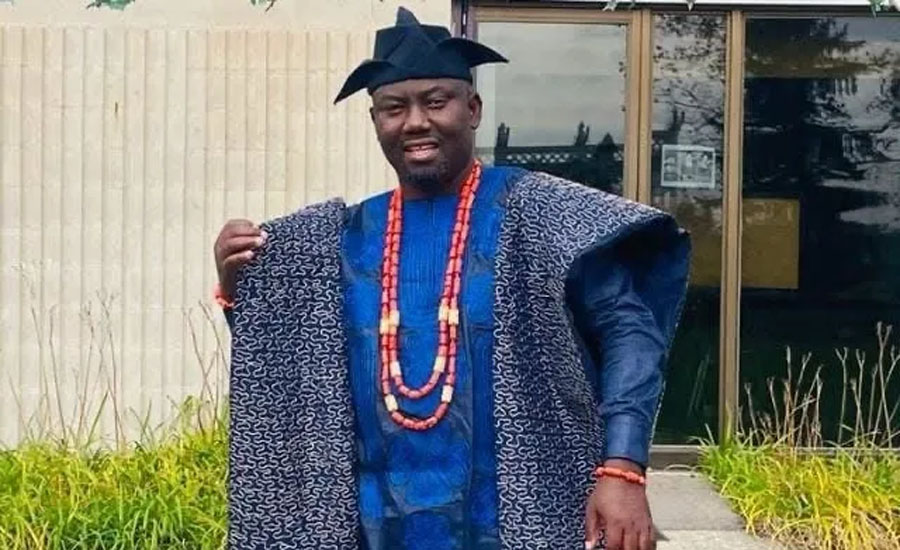
Tension in Oyo as residents protest 23-day curfew for Alaafin’s traditional rites
There is palpable tension in the ancient town of Oyo as residents react to the 23-day curfew announced by Rotimi Osuntola, Chief of Staff to the newly appointed Alaafin of Oyo, Oba Akeem Abimbola Owoade.
The curfew, which follows the commencement of Oro Ipebi, is part of the traditional rites leading up to the formal ascension of the Alaafin.
However, the timing of the curfew, which comes just six days into the Ramadan fast, has sparked criticism from Islamic scholars, legal practitioners, and academics. Some have described the decision as insensitive and an infringement on religious and human rights.
A former Amir of the Muslim Students Society of Nigeria (MSSN), Professor Taofiq Yekini, strongly condemned the move, calling it an “invitation to crisis.” He criticized the timing, stating that it disrupts essential religious activities during Ramadan.
“It is insensitive. The issue of the rites to the throne was delayed to the period of Ramadan when we knew that the period of Ramadan, morning and night, are usually characterised by activities. Then you are now imposing a curfew at the period when you know that the Muslims will be busy morning and night throughout this period, that is insensitivity. It is insensitivity on the part of the people that declared it and even the government for allowing such to stay.
So, if the Muslims now react, they will be blaming the Muslims. We want the general public to know that this is an invitation to crisis. That is what they are calling for,” he said.
Dr. Mikail Abdulsalam, a lecturer in the Department of Arabic and Islamic Studies at the University of Ibadan, expressed concerns that the curfew could lead to religious conflict if not addressed. He emphasized that restricting movement in the name of traditional rites is a violation of human rights.
“The imposition of curfew is a violation of human rights. Declaring a curfew in the name of the appointment of a new king or traditional rites for the new king is a violation of human rights. It is quite unfortunate that no single human rights advocate has ever condemned this. If it is the Muslims that did this, some people will say it is anti-people.
READ ALSO:
- Rivers: Channel your invitation properly, Speaker Amaewhule tells Gov Fubara
- Workers of Oyo tertiary institutions begin indefinite strike
- Lakurawa terrorists burn 7 Kebbi villages, 13 killed
“Why will they tell people not to move between 8pm and 5am when some people may need urgent medical attention?
“That is a prime time for some people to do their businesses. So, declaring curfew in the name of traditional rites is a violation of human rights. We are civilized beyond all these things and it is barbaric. It is unconstitutional. You cannot say because someone wants to become king, people should not go out, who is he going to rule?
“Painfully, no one is condemning it, the security agencies, the state and local governments are not saying anything about it. Why is it that a single entity is declaring curfew when we have the government?
“Muslims need to go out and observe Solat Ishai and that will be affected, and if this is not taken seriously, it can lead to religious conflicts. I am at liberty to go out at that time to pray under the Nigerian constitution, so, I have never for once infringed on other people’s rights and you are telling me not to go, so, it is an infringement on my right; it may lead to religious conflicts, go and write it down. If it does not happen today, it will happen somewhere in Yoruba land if they continue like this.
“It is like gunpowder, it is going to blow one day. If people say that they want to go out and pray and you see some people saying they should arrest them, then it can lead to conflicts.” he said
Dr. Sulaiman Adewale Alagunfon, an Islamic scholar and Director of the Academy of Arabic and Islamic Studies, Ibadan, described the situation as a test from Allah. He urged Muslims in Oyo to remain steadfast despite the restrictions.
“This situation serves as a test of our Islamic faith and reveals where the new king truly stands. For a purported ‘Muslim’ king to declare and enforce such anti-Islamic measures, citing ‘traditional rites’ during this sacred month, clearly highlights his true allegiance. As we have observed throughout his nomination, it has become evident that he does not genuinely adhere to Islam, even though he retains his Muslim name as a façade.
“This singular act demonstrates his opposition to Islam and the Muslim community. If he were truly observing the fast and fulfilling his Islamic obligations as a Muslim, he would understand the profound disrespect it shows to the feelings of Muslims to restrict movement during a month when the ‘nights’ hold great significance for our faith. He would recognize that night prayers, such as Tarawih, Tahajjud, and Laylat al-Qadr, as well as Sahur, are essential practices that require Muslims to move from one place to another during the nights of Ramadan for various reasons.
READ ALSO:
- Over two million candidates register for 2025 UTME, JAMB closes registration
- Drunk police officer shoots man dead in Minna
- Just in: Rivers Gov Fubara gets fresh ultimatum in impeachment move
“I urge the Muslims in Oyo Town to remain steadfast and committed to their acts of worship during this holy month of Ramadan. The imposition of a curfew should be viewed as a test from Allah, who wants to see how dedicated Muslims can be in challenging circumstances,” he stated.
An Ibadan-based lawyer, Barrister Abiodun Amole, condemned the curfew as unconstitutional and unjustifiable. He argued that the curfew violates Section 41(1) of the 1999 Constitution, which guarantees the right to freedom of movement.
“Without mincing words, the declaration of a 23-day curfew in the ancient town of Oyo under the guise of performing Ipebi rites is a gross violation of the spirit and letter of Section of Section 41(1) of the Constitution of the Federal Republic of Nigeria, 1999 (as amended) which guarantees citizens’ right to freedom of movement.
“The so-called curfew is extra-constitutional, unilateral, inconsiderate and unjustifiable to say the least. Section 41(1) of the Constitution of the Federal Republic of Nigeria, 1999 (as amended) expressly provides thus: ‘Every citizen of Nigeria is entitled to move freely throughout Nigeria and to reside in any part thereof, and no citizen of Nigeria shall be expelled from Nigeria or refused entry thereto or exit therefrom’.
“Furthermore, the purported curfew is also contrary to Article 13(1) of the Universal Declaration of Human Rights adopted by the United Nations on 10th December, 1948 and Article 12 (1) of the African Charter On Human and Peoples’ Rights. Article 13(1) of the Universal Declaration of Human Rights states thus: ‘Everyone has the right to freedom of movement and residence within the borders of each state’.
“In a similar vein, Article 12(1) of the African Charter On Human and Peoples’ Rights provides that: ‘Every individual shall have the right to freedom of movement and residence within the borders of a State provided he abides by the law’. Having regard to the above clear provisions of the grundnorm and the two treaties to which the Federal Republic of Nigeria is a signatory, the scenario currently playing out in Oyo town amounts to sheer illegality.
“Any traditional rites that infringe on citizens’ rights in any way or manner whatsoever cannot stand in a democratic society where the rule of law is sacrosanct.” Amole argued.
Dr. Bayonle Busari, a lecturer at Lead City University, warned that if the curfew is not reviewed, it may lead to a breakdown of law and order. He emphasized that the situation must be handled carefully to avoid rebellion.
“There is the need to handle the coronation rites with caution so as not to make living difficult for the subjects who Kabiyesi will rule over. There may be an obvious clash between tradition and the right to free movement and religion, which the constitution guarantees as inalienable.
“The period coincides with the fasting month of both Muslims and Christians who form the larger percentage of the indigenes and residents of the ancient town.
“Not only this, Oyo town is a corridor for those who commute between the north and south of the country, and the restriction will obviously curtail their movement.
“I think, in view of the prevailing time, the restriction could be reviewed in a way that will not lead to a probable rebellion and breakdown of law and order.”
Tension in Oyo as residents protest 23-day curfew for Alaafin’s traditional rites
-

 Education13 hours ago
Education13 hours agoOver two million candidates register for 2025 UTME, JAMB closes registration
-

 metro2 days ago
metro2 days agoALGON drags FG, states to court over local govt funding, autonomy
-

 metro3 days ago
metro3 days agoReginal Daniels removes husband’s name from new video, Ned Nwoko reacts
-

 metro2 days ago
metro2 days agoOpen loud preaching in Anambra attracts N500,000 fine – Soludo
-
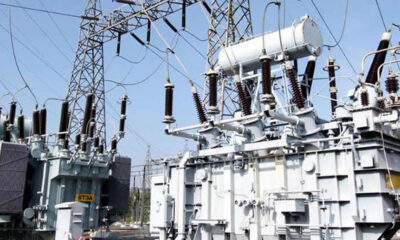
 metro2 days ago
metro2 days agoBlackout: TCN, DisCos debunk fresh grid collapse, supply hits 5,093MW
-

 metro22 hours ago
metro22 hours agoUse of worn-out tyre lands FRSC sector commander in trouble
-
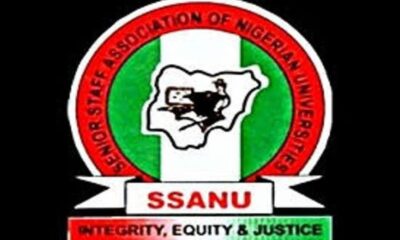
 Education22 hours ago
Education22 hours agoVarsity workers protest non-payment of salary increment arrears
-

 metro3 days ago
metro3 days agoTinubu offers fresh appointment to Jega



